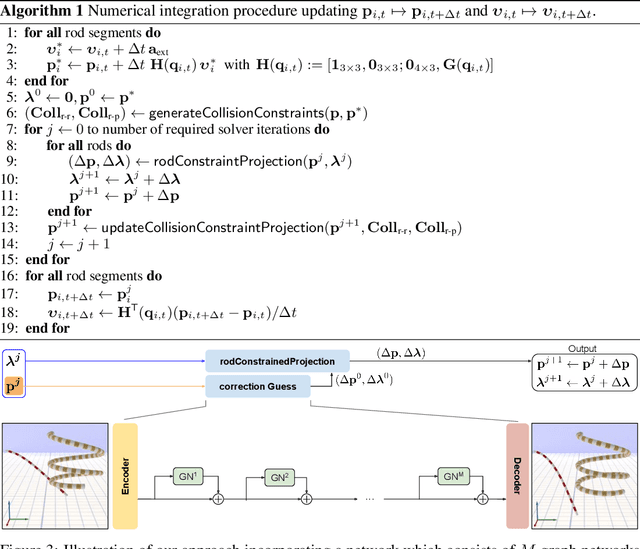Accurately Solving Physical Systems with Graph Learning
Paper and Code
Jun 06, 2020



Iterative solvers are widely used to accurately simulate physical systems. These solvers require initial guesses to generate a sequence of improving approximate solutions. In this contribution, we introduce a novel method to accelerate iterative solvers for physical systems with graph networks (GNs) by predicting the initial guesses to reduce the number of iterations. Unlike existing methods that aim to learn physical systems in an end-to-end manner, our approach guarantees long-term stability and therefore leads to more accurate solutions. Furthermore, our method improves the run time performance of traditional iterative solvers. To explore our method we make use of position-based dynamics (PBD) as a common solver for physical systems and evaluate it by simulating the dynamics of elastic rods. Our approach is able to generalize across different initial conditions, discretizations, and realistic material properties. Finally, we demonstrate that our method also performs well when taking discontinuous effects into account such as collisions between individual rods. A video showing dynamic results of our graph learning assisted simulations of elastic rods can be found on the project website available at http://computationalsciences.org/publications/shao-2020-physical-systems-graph-learning.html .
 Add to Chrome
Add to Chrome Add to Firefox
Add to Firefox Add to Edge
Add to Edge